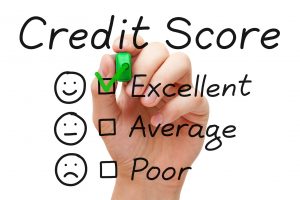Now that you have your free credit report, you may start to wonder about what your credit score means. Credit providers use your credit reports and credit scores to judge their risk when lending money to you. You can obtain your credit reports for free, but you have to pay to see your score. What goes into a credit score?
Each credit bureau actually has their own credit scoring system for you. They all use basically the same information, but differ on how much weight they put on different factors. Some may place more importance on your payment history than others, who may place more emphasis on the length of your credit history, for example.

The main components of a credit score are:
* Payment History
This is how prompt your payments are and if you have paid as you agreed. Information in this area may include whether you have past due items, negative public records (eg. bankruptcy), late payments and how late they are and how long ago negative credit events were.
* Amounts owed
This is the number of accounts you have, the account balances, how much of your credit you have used compared to how much credit you have available. The credit bureaus also look at the balances on different types of accounts – a big balance on a home loan/bond is viewed quite differently than a big balance on a credit card!
* Length of credit history
The longer your credit history, the better your credit score. If you keep everything current your credit score should improve as time goes on. The longer you have credit accounts open, the more “proof” you have that you pay everything on time and therefore the more creditworthy you will be. If you decide to cut up all your credit cards, but one, you should pick the one with the longest credit history to keep open.
* New credit
The more new credit you have, the riskier it looks to lenders, because it has the appearance that you are loading up on credit for a spending spree. The credit bureaus check on how many new credit accounts you have opened, how long ago they were opened, number of recent enquiries and whether the new credit lines actually point to a better credit profile after a period of payment problems.
* Types of credit used
The number of and variety of different accounts (for example, store credit, bonds, credit cards or installment loans). The presence of a home loan, for instance, could point to greater stability on the part of the client, compared to a long list of store credit cards, for example.
What is a good credit score? It depends on the credit bureau. Each have their own scoring system. They will, however, give you a range so you can judge whether your credit score is good or not.
How long does negative information stay on my credit report? Look out for my next post.
Kevin Mzansi
0 Comments
Leave A Comment